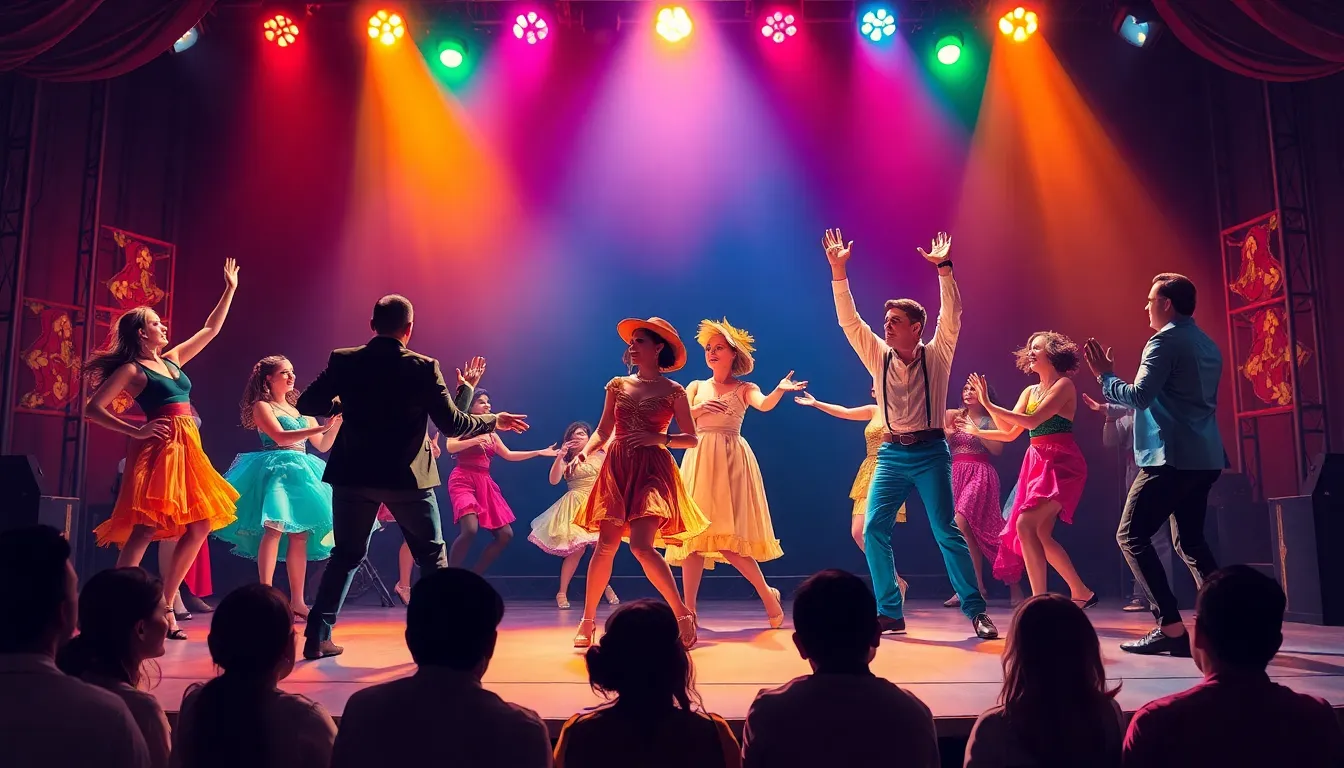Entertainment is everywhere, from the latest blockbuster movie to that binge-worthy series everyone can’t stop talking about. But what really defines entertainment? It’s more than just a way to pass the time; it’s a gateway to experiences that evoke laughter, tears, and everything in between. Whether it’s a gripping novel or a stand-up comedy special, entertainment captivates and connects people across cultures and generations.
In a world where stress levels soar and daily routines can feel monotonous, entertainment swoops in like a superhero in spandex. It offers an escape, a distraction, and sometimes a much-needed reality check. So, let’s dive into the delightful world of entertainment and uncover what makes it tick. Who knows? You might just find your next favorite pastime waiting for you in the mix.
Define Entertainment
Entertainment transcends mere leisure activities. It encapsulates a vast array of experiences designed to engage emotions and foster connections.
Historical Context of Entertainment
Entertainment’s roots extend back to ancient civilizations. The Greeks and Romans used drama and theater to express societal themes. Festivals blended music and dance, creating communal joy. Oral storytelling flourished across cultures, preserving history and morals through generations. Social gatherings often included games and competitions, further integrating entertainment into daily life. These early forms laid the foundation for modern entertainment, showcasing its enduring importance in human culture.
Evolution of Entertainment Forms
Entertainment forms have transformed significantly over time. The invention of the printing press catalyzed the spread of literature, enriching public access to stories. The 20th century introduced film and radio, revolutionizing how people consumed entertainment. The rise of television created shared viewing experiences among families. Digital platforms emerged in the 21st century, offering streaming services that redefined access to content. As technology advances, interactive forms of entertainment, like video games and virtual reality, continue to reshape engagement in this evolving landscape.
Different Types of Entertainment

Entertainment takes many forms, appealing to diverse audiences through various mediums. Understanding these categories highlights how entertainment enhances cultural experiences.
Performing Arts
Performing arts include theater, dance, and music. Each art form captivates audiences with live performances that evoke emotions. Theater productions engage viewers through storytelling combined with visual elements. Dance showcases physical expression and rhythm, often reflecting cultural traditions. Live concerts feature musical artists performing for enthusiastic crowds, creating unforgettable moments. The dynamic nature of performing arts fosters connections between performers and audiences, making it a powerful medium of entertainment.
Visual Arts
Visual arts encompass painting, sculpture, photography, and design. Artists communicate ideas and emotions through their creations, allowing viewers to interpret meaning. Painting brings colors and techniques together to inspire and provoke thought. Sculptures provide a tangible form of artistic expression, often found in public spaces or galleries. Photography captures moments in time, telling stories through still images. Each visual art form enriches cultural dialogue, inviting individuals to explore and appreciate creativity in its many forms.
Digital Entertainment
Digital entertainment spans video games, streaming services, and interactive media. Video games engage players through immersive storytelling and gameplay mechanics. Streaming services like Netflix and Hulu deliver a vast array of films and television shows, catering to various interests. Interactive media involves platforms that allow users to create and share content, fostering community and collaboration. This domain continues to grow rapidly, integrating new technologies that enhance user experiences and redefine traditional entertainment boundaries.
The Role of Entertainment in Society
Entertainment plays a crucial role in shaping society, influencing culture, and enhancing the human experience. Through various forms, it fosters connections among individuals and communities.
Cultural Significance
Cultural significance emerges through entertainment’s ability to reflect societal values and beliefs. Art forms such as theater, music, and dance often mirror historical events and cultural narratives. They provide insights into the lives and experiences of diverse groups, fostering empathy and understanding. Major celebrations, like concerts and festivals, create shared experiences that strengthen community bonds. Additionally, entertainment acts as a vehicle for preserving traditions while adapting them for modern audiences. For instance, contemporary reinterpretations of classic plays offer both relevance and accessibility. Through these interactions, entertainment becomes a crucial thread in the intricate fabric of society.
Psychological Effects
Psychological effects of entertainment impact mental health and well-being significantly. Engaging with various media provides emotional escapism, allowing individuals to relieve stress and anxiety. Movies and music often evoke cathartic responses, helping people process complex emotions. Studies indicate that participating in entertainment, whether through shared experiences or solitary enjoyment, can enhance mood and foster relaxation. Major events, such as live performances, generate a sense of belonging and collective joy. Moreover, interactive media, like video games, promote cognitive skills and problem-solving abilities. Through entertainment, individuals find respite and connection, reinforcing its vital role in mental wellness.
Trends in Entertainment
Entertainment continuously evolves to reflect current trends and societal shifts. Two key areas shaping this evolution are technological innovations and changing audience preferences.
Technological Innovations
Emerging technologies impact entertainment significantly. Streaming services, driven by high-speed internet, provide instant access to vast libraries of content. Virtual reality creates immersive experiences, allowing audiences to engage with narratives uniquely. Additionally, advancements in mobile technology enable users to enjoy entertainment on-the-go. Innovative platforms, such as TikTok, have transformed content consumption, prioritizing short, engaging videos that resonate with younger demographics. Artificial intelligence personalizes user experiences by recommending tailored content based on viewing habits. These innovations redefine how audiences interact with various entertainment forms, making convenience and engagement paramount.
Changing Audience Preferences
Audience preferences continually shift in response to cultural trends and technological advancements. Viewers increasingly favor on-demand content, moving away from traditional broadcast schedules. Preferences also lean towards diverse and inclusive storytelling, reflecting broader societal changes. Many audiences seek authenticity and relatability in narratives, driving demand for original content. Interactive formats, such as live streaming and gaming, engage users actively, offering more than passive consumption. Social media influences viewership as audiences share and discuss content in real-time. These changes highlight the importance of understanding audience dynamics in the entertainment landscape.
Conclusion
Entertainment is a dynamic force that transcends mere distraction. It shapes cultures and fosters connections among people from diverse backgrounds. As it evolves with technology and audience preferences, entertainment continues to adapt while maintaining its core purpose of evoking emotions and enriching lives.
From ancient storytelling to modern digital experiences, the journey of entertainment reflects humanity’s creativity and resilience. Engaging with various forms of entertainment not only provides joy but also enhances understanding and empathy. As society progresses, the significance of entertainment remains steadfast, proving its essential role in the human experience.

